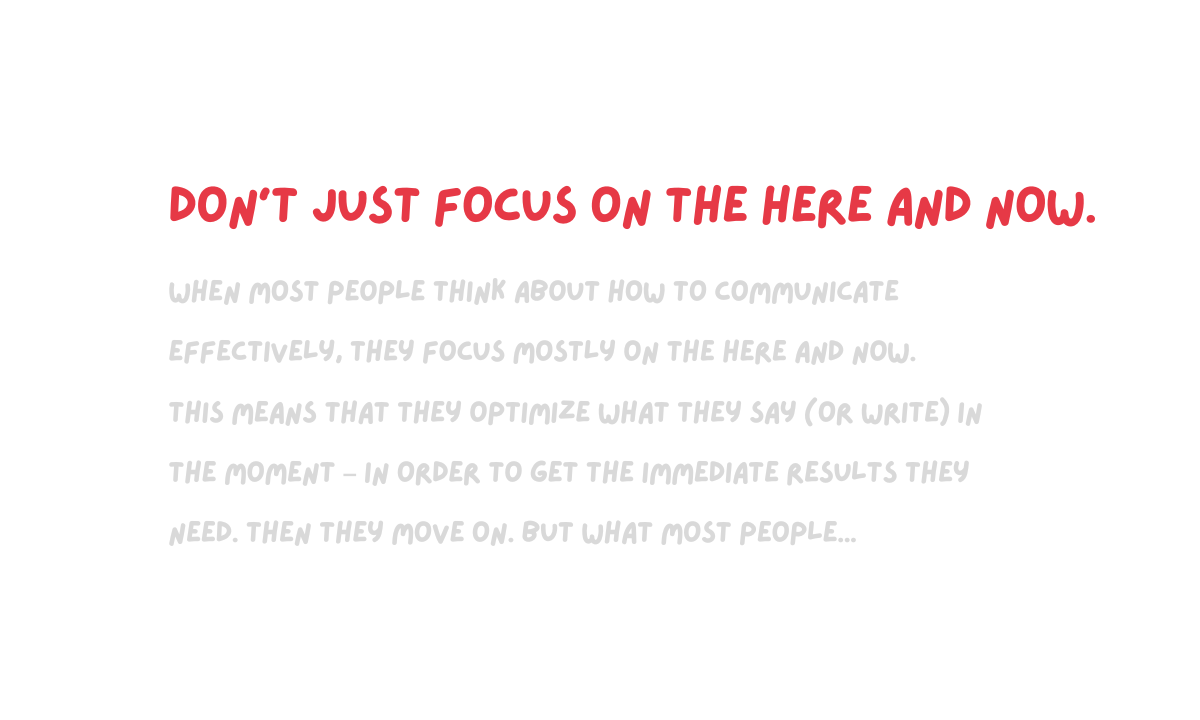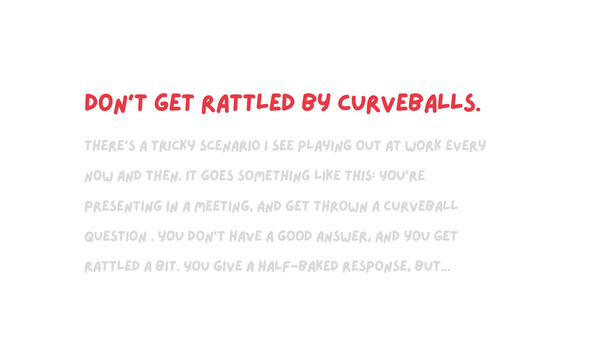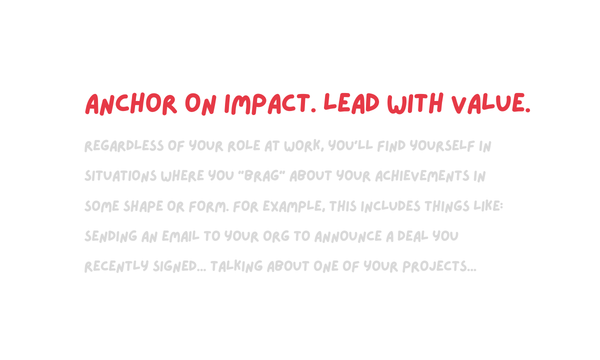To get taken seriously, remember that you're in a repeated game

I recently caught myself almost shooting myself in the foot.
Here's what happened.
I was working on a project with a colleague, and we had reached a checkpoint. We then agreed that he would take over and drive the next phase of the project.
But the next day, I found myself with some spare time. So I decided to bring up the project materials and take a quick look.
And once I did? I saw a couple things I wanted to change. Naturally, I started typing out comments.
I almost hit "send" – before I caught myself and hit the brakes.
Because while my intended comments were well-intentioned and valid? I realized that as soon as I pressed "send," I would be undermining myself in the future.
I would be essentially telling my colleague:
- "Yes, I told you yesterday that I trust you to take full ownership of the presentation materials..."
- "However, I obviously didn't really mean what I said – which is why I couldn't help but jump in myself a day later..."
- "In the future, when I tell you that I trust you or that I am OK with delegating – make sure that I mean it. Because my actions show that clearly sometimes I don't."
Sure, had I sent those comments, the presentation at hand definitely would've gotten better.
But I would've all but guaranteed that I'd get taken less seriously in the future.
Thinking beyond the here and now
When most people think about how to communicate effectively, they focus mostly on the here and now.
This means that they optimize what they say (or write) in the moment – in order to get the immediate results they need. Then they move on.
But what most people don't realize is this: You're always playing a repeated game.
More often than not, the efficacy of your comms is shaped less by what you say in the moment – and shaped more by what you've demonstrated in the past.
And if that track record is shaky? No amount of fine-tuning and polishing can get the job done. Your message simply won't land.
The outcomes are determined way before you even step into the room.
But what does this mean in practice? Let's look at some examples.
👋 Join 5000+ readers and subscribe to Herng's Newsletter for free:
#1 The folly of "everything is a priority"
There's nothing wrong with advocating passionately for what you deem to be critical priorities at work.
(In fact, in order to advocate effectively? You should also apply these storytelling principles whenever you can.)
A common mistake, however? It's to focus disproportionately on championing the issue at hand, without considering what it's doing to your credibility in the future.
This means doing things like:
- Everytime you show up with an ask, you claim it is of the utmost importance ("If we don't get this budget, the initiative will fall apart completely")
- You are never seen to voluntarily deprioritize anything ("Everything on our list is top-priority; we absolutely can't drop anything")
- You refuse to deal with trade-offs ("It's all or nothing; there's no fallback plan")
But what you have to realize is this: no message ever lives in isolation. Even the most factual, objective, and compelling statement does not get evaluated on its own merits.
Instead, that message is almost always tied to a person – and thereby that person's track record. Only then does the message get judged accordingly.
So if you're the person who is perceived to default to hyperbole for everything? You'll find it harder over time to influence effectively.
Because you're in a repeated game. And your track record often matters much more than any kind of storytelling finesse.
#2 The implications of "I can't, because..."
Pushing back at work is never easy. And it's often tempting to find the easy way out by using "convenient" or even "unassailable" excuses.
What does this mean? For example:
- You're trying to skip an unimportant meeting, but feel awkward declining outright. So you say: "I'd love to join, but unfortunately I have a deadline to meet today."
- You're trying to push back on a task, but feel awkward saying no. So you say: "I usually don't get involved in this process, but I can do it this one time as I happen to have spare time this week."
When you do this? You're saying a lot more than you realize. Whether you realize it or not, you're now establishing your rules of engagement.
And because you're in a repeated game? Your interlocutors are now thinking:
- For future meetings: "If you don't have a firedrill to deal with, then you should join by default."
- For future tasks: "If you have spare time, then you should be able to take on these requests."
As a result: boundaries get pushed. Bad precedents get set. Misunderstandings might even occur.
And it's all because you optimized for the here and now – instead of realizing that you're in a repeated game, and that there are implications down the road.
#3 The importance of "closing the loop"
Your influence isn't just shaped by what you've said in the past. It's also about the signals you send when you don't say or do something.
For example: I remember instances at work when someone would reach out with a "urgent" or "critical" request – only for me to never hear from them again once I fulfilled said request.
Were they doing anything wrong? Not necessarily.
But the act of not "closing the loop" does tend to leave a sour taste in people's mouths. Not to mention that for future encounters, people start wondering things like:
- "I cleared out my calendar last time to help do this analysis – yet I never heard back on how it went. I wonder if it was really as urgent as he made it sound?"
- "I'm surprised that they didn't have more questions for me for the dataset I provided; I wonder if they asked for it simply as a good-to-have?"
- "We were asked for super granular inputs last time, which took us quite a few days. I wonder how those inputs were eventually used. Do we really need to invest the same amount of effort again?"
Again, it's not that you're being a jerk by getting what you need and "moving on."
(Although do make sure you don't come off as highly transactional – that's a big red flag.)
It's just that people are naturally wired to seek out signals that help them optimize how they spend their time and effort.
So if you're not closing the loop properly? Don't be surprised if the threshold for entertaining your needs in the future become higher.
You're playing a repeated game. And "future" you will only be taken seriously if "present" you puts in the right effort.


